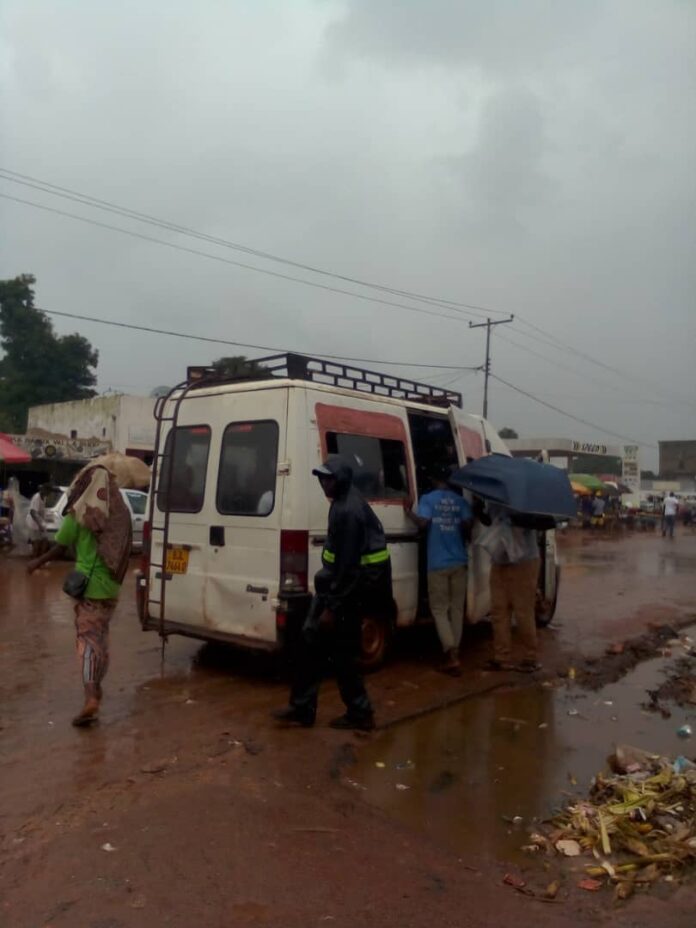By: Modou Touray
Gambians across all sectors of the economy expressed fear of an unforeseen economic lockdown as the Ministry of Transport and Transport Union issued divergent statements on the drivers’ strike instead of focusing on mutual dialogue.
Some of the commuters who spoke to The Fatu network this morning said the frequent strike by drivers cause them difficulties in getting to their workplaces and running errands on time.
“If we cannot get to work on time, services will be delayed leading to economic losses. I work at a private clinic where I am supposed to administer drugs and injections to my patients but due to lack of transport, I could not report to work. My patients’ health conditions might worsen,” Lamin Yarboe, a private health worker, said.
The president of the Gambia Transport Union, Omar Ceesay, laid demands that he said must be met before they end their sit-down strike. He called on all the commercial drivers, commercial transport owners, and all garage attendees across the country to sit at their homes.
“I came to the Brikama garage around 6 am. My mission was to accompany my child to Saint Peters Primary School in Lamin village for admission. Unfortunately, I could not be able to do that today. The police bus came around, but people rushed to get on board so I could not secure a seat,” Mrs Awa Manneh narrated.
Industrial action happens when trade union members are in a dispute with the government such as high fuel costs that can’t be solved through negotiations. A trade union can only call for industrial action if the majority of its members are involved. Although fewer drivers defied the Monday strike.
“Only a few drivers were plying mostly 7 passenger vehicles. They are charging D50 from Brikama to Westfield. Brikama to Banjul is D75. I can’t afford this fare,” Fanta Mbye said.
The Ministry of Transport issued a statement warning drivers not to obstruct those who are not part of the strike.
“I came with a commercial van from Bwiam up to Brikama but the driver decided to discontinue his journey to Banjul. My tomatoes are still with me which I should take to my customers in Albert market in Banjul,” Sariba Nyassi said
The pressure groups and trade unions are special interest groups which seek to influence Government policies in a particular direction. This is not the first time the Gambia Transport Union stage a strike with conditions.
“Anytime there is a strike, it affects economic activities. I sell food at the garage every morning but no single sales today. I don’t have a refrigerator to preserve the food for another day,” Ndey Sey asserted.
Many shops around the Brikama Garage had low sales, especially a restaurant that depends on passengers and drivers to buy from them.
“I work at Kuloro, but I am already late because no vehicle yet. I saw a private driver who is picking up passengers but only for town- trips which are D300- D500 depending on your agreements,” I can’t afford that, Borry Sonko said.
Police staff busses as well as the government public buses rescued stranded passengers on the roadside to transport them. Many economic activities take place in the morning which has been adversely disrupted today. Citizens call for dialogue amongst stakeholders to amicably resolve the country’s transport challenges.




